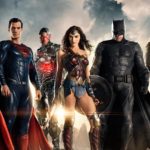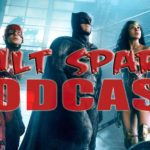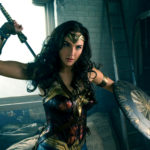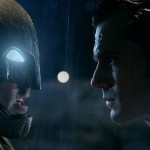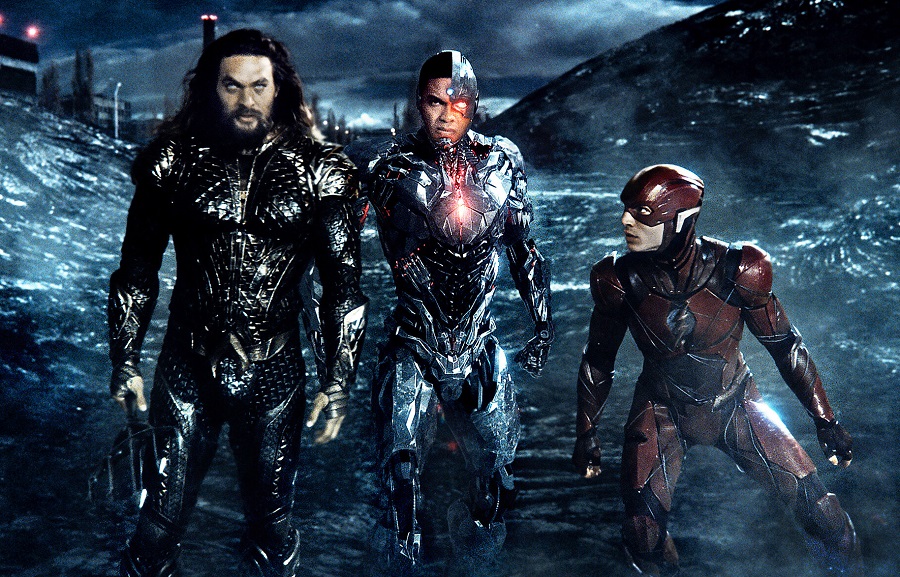
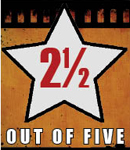
It's hard to know how to even begin approaching something like Zack Snyder's Justice League.
It is a work that in some ways defies categorization. It's far longer than most films, structured like a TV miniseries and yet never feels committed to either format. It exists as creative and emotional catharsis, both for its creator and its hardcore fans. It is perhaps the de facto contemporary example within the film industry of "What if…" given full life in full frame. It dares anyone who wasn't already sold to question whether it's good, then proceeds to not care a single whit what you or anyone else thinks.
This is, for better and worse, Zack Snyder's vision fully realized. Whether you or I or anyone else likes it is almost beside the point.
For those not Extremely Online, some context is necessary. Snyder's production of Justice League back in 2015-2016 was originally supposed to be a two-part epic. It was then shrunk to one film. Then it was ordered to undergo massive rewrites and reshoots as Warner Bros. was unhappy with the four-hour cut Snyder presented. Originally summoned to simply do rewrites, Joss Whedon was eventually tapped to reshoot more than half the film when Snyder departed the production after losing his daughter, who had been battling severe depression, to suicide.
Whedon was then tasked with a single directive: Bring the magic he sprinkled on his Avengers movies (the first of which became one of the highest grossing films of all time) to the DC Cinematic Universe and make a two-hour superhero romp full of quips and lighter character interactions. On paper at least, Whedon succeeded. The theatrical cut of Justice League which hit theaters in March of 2017 was a (relatively) breezy affair that employed his trademark snappy dialogue and eschewed almost entirely the grim, glum tone seen in Man of Steel and especially Batman v. Superman: Dawn of Justice. The theatrical cut is … fine. It's aggressively mediocre. I don't consider it to be the atrocity that many do. Though it's certainly not good by any stretch, I find it to be weirdly watchable all the same. An innocuous film to put on and mostly ignore while folding laundry, periodically glancing up to watch Batman or Wonder Woman do something cool while trying to pair socks. Regardless, it seems universally understood that this cut of the film is, at best, a compromised and butchered version of what Snyder wanted to present to the world.
But now, four years, a seemingly endless hashtag and studio-executive harassment campaign, and an additional $80 million later we have the once-mythical Snyder Cut presented to us in all its 4:3 aspect ratio glory.
THIS, we were assured by a legion of the director's most faithful fans, would be the Ultimate Movie. Audiences would finally be able to soak in FOUR HOURS of Zack Snyder's unfiltered, uncut, uninhibited vision. The opening disclaimer itself (warning us that there is, in fact, nothing wrong with your television due to the boxy, full frame presentation) extolls the notion that this is Preservation of Artistic Integrity personified. So why does it mostly seem like the same movie I first saw in 2017 but is mostly just … longer?
With a runtime (including credits) of four hours, two minutes, there's more movie here than most films would dare. Not a single frame or line from Whedon's reshoots remains, and in its place seems to be every single scrap of usable footage available, inserted whether it enhances the movie or not. And to its credit, a lot of it does. The bulk of the restored material involves Barry Allen (Ezra Miller) both in-costume as The Flash and out of it, nearly the entire character arc of Victor "Cyborg" Stone (Ray Fisher), as well as nearly half a movie's worth of scenes involving Cyborg's father, Silas (Joe Morton), at S.T.A.R. Labs.
It's easy to see why Fisher would be bitter at having his part reduced. His entire character arc is essentially unrecognizable in the theatrical cut compared to what's here, including but not limited to flashbacks to him being transformed, entire action beats, as well as elaborate sequences involving him learning about his incredibly dangerous abilities and him explaining how one of the film's three MacGuffin's was found.
It's Miller's Barry Allen that gets, in my opinion, the best of the restored material, including an entirely new introduction in the film and completely different task to perform in the finale. While Miller could certainly have stood to dial back his performance a bit, his take on Barry as a neophyte superhero is probably my favorite aspect of the whole thing.
Cyborg and Flash footage aside, however, the rest of the movie is largely the same. The finale is admittedly better (and quite excellent) due to its expansion and inclusion of different footage and gives more characters more to do. But overall character arcs, plot points and the ending of the film all cover the same ground to the point where I question why WB didn't just cut a version of this footage and be done with it. I think everyone involved (Whedon included) would have been happier that way.
Instead what we have with this feels like an overcorrection. Snyder and his fans didn't get what either wanted the first time so he included everything and then some, often to the detriment of the experience. Simply put, this is a laborious thing to watch, often feeling interminable in length. Exposition is restated on several occasions. Characters are given multiple introductions. Scenes go on seemingly right up until the moment someone shouted "cut!"
And that's not even taking into account the utterly baffling way it's all strung together. I'm not being hyperbolic when I say this is one of the worst edited films I've ever seen. Individual scenes aren't incompetently edited, but the scene transitions often make little sense narratively, thematically or emotionally. There's one series of scenes early on where we go from Alfred (Jeremy Irons) griping about being cold, to Lois Lane (Amy Adams) buying a cup of latte art and mourning at Superman's memorial, to Wonder Woman (Gal Gadot) finally showing up to rescue a bunch of school kids from terrorists. The film often moves from one thing to the next with seemingly little to no consideration as to why. Even in the rare cases where it feels like the film is at last achieving something resembling a rhythm or momentum, Snyder obliterates that by cutting away to something else.
If nothing else, this simply cements Snyder's unfitness for shepherding something like the DC Cinematic Universe. It's fully understandable why this movie would have a mournful, solemn tone to it given his personal trials and tribulations. And even though the film ultimately ends up more optimistic than one might expect, there's still a dour tone to the whole affair that simply doesn't fit these characters. DC's marquee heroes here are (Batman excepted) largely supposed to be aspirational gods, not the solemn figures we see here bogged down by emotional trauma. There's room to explore that with these characters, but doing so when many of them are being introduced just seems like the wholly wrong approach.
And even when he finds a way to try and lift these characters beyond said emotional trauma, as is often the case with Snyder's work, he expertly undercuts himself. Take for instance Cyborg and the scene where he attempts to fly for the first time. He launches himself skyward, rapidly leaving the gloom of Gotham City beneath his feet. It's an exhilarating moment of self-realization and self-actualization. A moment of freedom and joy after what's obviously been a painful and impossible set of circumstances for the character to navigate. We see Victor's face light up and he smiles, likely for the first time since his football victory before the near-fatal accident. We linger on that smile for just a couple seconds before a horrible CGI "badass" facemask materializes and covers his entire visage.
At the end of it all, I find it difficult to feel strongly one way or the other about Zack Snyder's Justice League. It's not bad. But it's too confounding and too poorly constructed to be good. It's not necessarily to my liking as a full piece, but I will never be mad that an artist has finally had the chance to complete a work the way it was intended. Though even seeing that realized as fully as it is here makes one appreciate all the more the work of a good editor and producer.

